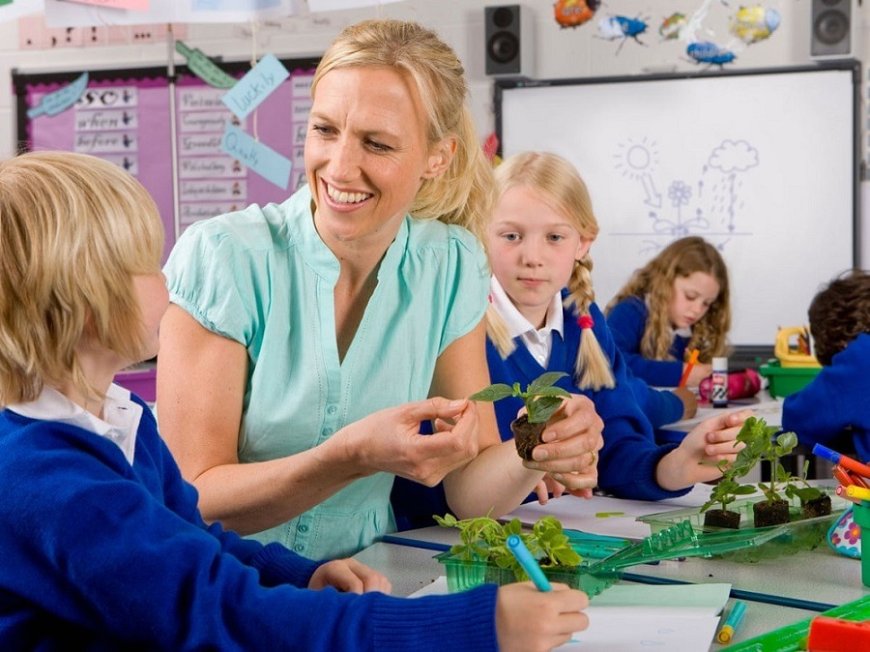Difficulties in communicating with peers in primary school age and overcoming them
The birth of a child gradually acquires social skills in communicating with adults through various objects, toys, speech.

The more different techniques there are in the teacher's arsenal, the better he will be able to choose the necessary method in a given situation.
The birth of a child gradually acquires social skills in communicating with adults through various objects, toys, speech. When a child grows up, he needs to socialize with peers. Over time, the nature of this communication changes and becomes more complicated, taking the form of direct emotional contact, contact in the process of joint activities, or speech communicating.
During the webinar, the special education teacher outlined the main methods of developing effective communicating skills in students and highlighted aspects of the problem of establishing a communicative process of peers.
In communication, the child satisfies emotional needs - develops his emotional intelligence, learns to establish contact, feels the emotions of his interlocutor, as well as meets the needs for information and skills of joint activities.
The leading activity of students is learning, but the ability to communicate is well manifested in the game. That is why it occupies a very important niche in the development of the child of primary school age. In the game, children often make friends sympathize, or vice versa, there may be a reassessment of the situation when the child is watching his peers. Therefore, it is very important to observe how students behave during the game.
How to work with a child who has communication difficulties?
Quite often the child seeks recognition in the team but does not know how to establish contact with peers. Such a child may not be accepted into the micro-groups that are usually formed in the classroom. If you notice such a student, the first thing to do is to have a conversation to find out why the child feels this way.
To do this, you can ask the following blocks of questions:
Expressing sympathy
- "Who would you like to be friends with?"
- "Who would you not want to be friends with?"
- "If you were asked to move to another class, who would you take with you from that class?"
Identifying the style of communication in the family
- "Do you like/don't like doing homework with?"
- "Who do you like/don't like playing with at home, having lunch with?"
- "Who in the family would you like to be like?"
Identification of possible learning difficulties
- "Which teacher are you interested in / not interested in?"
- "Who do you think is the strictest teacher?"
- "Which teacher would you like/dislike?"
Identification of the emotional and volitional sphere of the child
- "Do you usually want to be with a teacher or play with your friend?"
- "Will you sit down with your peer or teacher on a bus tour?"
- "In class, if you don't understand something, will you turn to a teacher or a classmate for help?"
Finding out the reason for the child's difficulties in communicating with peers
- "When you're sad, who do you want/don't want to see around?"
- "Who could you tell your secret to?"
- "Who would you not like to do your favorite thing?"
Correctional games for children
"Sparrows and cars"
This game develops empathy, cultivates a sense of responsibility for their actions. It can be held outdoors or in the gym.
Children are divided into "sparrows" and "cars". When the teacher says that the game begins, the "sparrows" must fly on any trajectory, and the "cars" drive carefully. They are responsible for not knocking down the sparrow. In this way, the child learns to correct their actions for the safety of another person.
When a "sparrow" collides with a "car", such a couple sits on a bench and finishes the game. After the game, be sure to discuss everything that happened. Ask the children what emotions they felt in each role.
"Fables"
This game can play in any lesson as a physical education minute. You divide the children into pairs, but at the same time bring together those children who are not very friendly with each other to see how they will find a common language while working together. The teacher gives three words from which the children have to invent a fable and express it in one sentence.
"Therapeutic tales"
Therapeutic tales can be found on store shelves or come up with your own. The best corrective effect will be possible if you play this fairy tale with children in roles. After the fairy tale, it is important to ask the children questions about the content of the fairy tale to make sure that they have mastered it well.
The speaker notes that the more different methods there are in the teacher's arsenal, the better he will be able to choose the necessary method in a given situation.
It is important to constantly monitor the child's dynamics: how he communicated in the team before and how he behaves now, whether he enjoys communication, whether he needs it, and so on.
